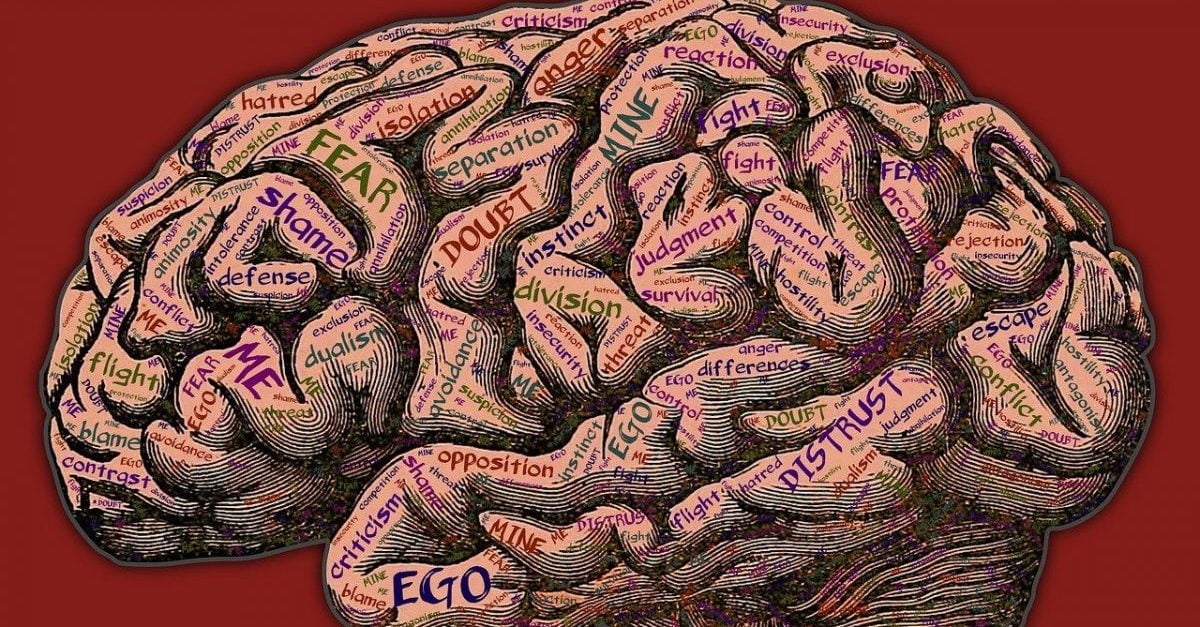Who are you? Really, who are you? Are you the school you went to? Your job? The sum of all your relationships? The person your parents raised? Are you all these things are something else? And how does this all link to the ego?
What is the Ego?
Essentially, the ego is how you see yourself. It is your self-image. It is the beliefs and thoughts that you hold about yourself. There are aspects of your ego that you are fully aware of and parts buried into your subconscious, affecting your decisions and actions.
The mind creates the ego at a young age to understand the world and its place in it. The ideas we form of ourselves during these formative years come from society and our interactions with others.
An ego can evolve and change throughout a lifetime as people see themselves differently. It can also stay rigidly the same. Whatever you think of yourself, it’s important to remember that the ego likes to tell itself simple stories, which are often overly negative or positive. Rarely is their nuance to a belief that is held.
- No one likes me because I’m boring.
- I am incapable of love or being loved.
- I am the greatest entertainer alive.
- Everyone knows I’m the best salesman.
For most people, the ego remains in this immature state. For those whose ego tells them a negative story about themselves, it will take all the negative things people say and do (including perceived actions) and constructs their belief about who we are from them. For others, it will take all the positive feedback and becomes overly inflated, refusing to listen to any constructive advice from others.
Our ego wants recognition, sometimes without even doing the work required. And when it feels it has worked hard, it will express its displeasure if it is not recognised. This searching for recognition makes us more miserable and stressed. Ambitious people have a desire to achieve, regardless of their success or recognition. Consequently, ambitious people tend to have a stable grip on reality and their own happiness.
The ego likes certainty and looks for evidence to prove its beliefs about itself. It always reinforces its own image of itself. Suppose the ego believes that it is unlovable. In that case, it will find evidence that proves that and ignore anything contrary to it.
Those with overly sensitive egos will argue against any view not supported by the ego. Suppose you believe that you did your best. In that case, the ego could refuse to listen to constructive criticism on how you could have improved your performance. Damaging the ego can cause psychological pain that many are unwilling to face.
Religious Views on the Ego
Buddhism has plenty to say about the ego and teaches us to avoid taking ourselves too seriously. We might learn that some of the ideas we believe about ourselves might not be as true as we think. In Buddhism, the ego is an illusion. A view shared by Neuroscience, Sociology and Philosophy.

Our ego doesn’t exist. It is a creation of the mind. It is shaped by our thoughts and emotions at a particular moment in time. Our mind creates the ego from these experiences. By remembering this, the hold the ego has over us is a little firm.
From the moment we are born, we experience suffering and pain. In protecting ourselves, our minds create a separate entity, the ego. A place where we are secure in our own bubble. However, in protecting us from suffering, the ego does the opposite. It is responsible for much of the suffering that we endure. We become the constant victim of the events within our lives. The ego will take an unanswered message as a personal attack without rationalising why the person may not have responded.
Jesus teaches a similar view. He argues that we should lose ourselves for others. By placing others in front of ourselves, we can learn to control the ego.
A bad day for your ego is a good day for your soul
Jillian Michaels
Cultural Differences and the Internet
In the West, the ego is more individualistic because society is much more individualistic. Sometimes we can be so focused on our own lives that we can forget important dates, like anniversaries or completely miss big news stories. The West also prides itself on greed and competition, which further produce immature egos.
Further to this, the prevalence of the internet in these societies has created egoists and damaged the mental health of millions, particularly teenagers. Psychological disorders, particularly depression and anxiety, have been correlated to the rise in social media use, impacting the way we think about ourselves.
How often do we reason that the attractive photo we see of our friends have been filtered to make them look better? Do we consider that people don’t share their lowest moments on social media? Those with low self-esteem often believe that they are unworthy, ugly and boring when looking for validation on social media.
Teenagers are particularly susceptible to this because their brains are still in development. They are also the group most likely to view and post pictures of themselves which bare no resemblance to who they are. They do this to protect their ego to not receive negative criticism for a perceived unattractive trait. Those that view this post can often tell that they have been filtered, but it doesn’t make them feel any better about their own appearance.

The internet has also created legions of fame seekers, and the ego wants fame. Children in the US and UK were more likely to say they wanted to be a famous Youtuber than a scientist. The society that has been created for the next generation values fame over hard work.? It has become a symbol of success. It has led to the modern rise in celebrity worship, the YouTube generation and people expressing sharing their entire lives on TikTok.
Benefits of Losing Your Ego
Working to dismantle the ego, helps to build an inner sense of freedom and openness. We become more altruistic, compassionate and happy. In overcoming the ego, we find true confidence in who we are and our abilities. Without trying to protect our ego, we can be open to feedback and criticism and improve our capabilities.
An ego that is kept in check also leads to more pleasant, likeable people. Dr Paul Ekman, the renowned American Psychologist, writes that the most inspiring, kindest people have an absence of ego. These people inspire others by how little they make of their status, and their fame. in short, themselves. They never give a second thought to whether their position or importance is recognised.
Steps to Defeat the Ego
We can control our ego by:
- Remember that we don’t know everything. It’s important to remember that there are always others that can teach us something. We should even be willing to learn from trainees as they can bring novel solutions to problems we have never considered.
- Working with the elite in the field. Network with others in your area and look to make links where you can learn from one another. Isolating yourself from others who work in your area could give you an overly inflated perception of your abilities.
- Training beginners and helping them to reach their best. Maybe even helping them to surpass our own abilities. The better others do should not be a challenge to our ego. It should be an opportunity to continually improve our own skills.
Reminding yourself that you don’t know everything is crucial to overcoming the ego. There will always be someone who knows more than you and therefore there will be something that they could teach you. We can’t learn if we think we have nothing to learn. And if we can’t learn, we can’t improve.
It is impossible to begin to learn that which one thinks one already knows.
EPICTETUS
Furthermore, it’s important to remember that much of our success is owed to others. There is little that we achieve in life that is due to our efforts alone.
“If I have seen further it is by standing on the shoulders of Giants.” Isaac Newton
If you have secured an important sale, who helped to harness your skills? Who prepared the materials for you to make the presentation to the client? Showing humility like this will make your life happier, and those around you will like it more.
Early success can often lead us all to rest on our laurels and stop striving for further success and look for improvements. Failure is essential for success because it is there where we learn the most, but only if we are open to learning from our mistakes.

Our pride can make us defensive and unwilling to listen to constructive criticism. We need to avoid being overly sensitive. We can only do that by controlling our egos and not taking criticism personally. View it as an opportunity to improve our abilities at that moment and not who we are as individuals. If it is seen in that light, we are less likely to suffer psychologically as a result.
Inevitably, you will fail at some point. When you do, don’t beat yourself up. You tried, and you should be proud of that. See where you can improve and improve your chances for next time.
To free yourself from the ego is to also free yourself from your own insecurities. It is from this that true confidence comes.
By overcoming your ego, you can start to live more confidently and joyously.





